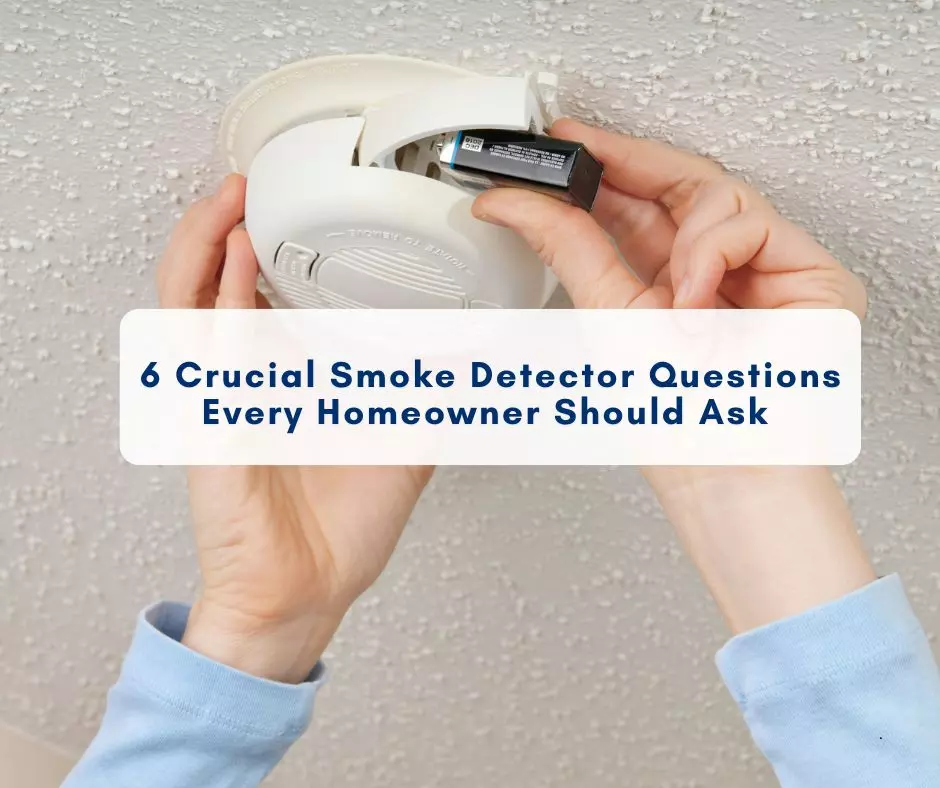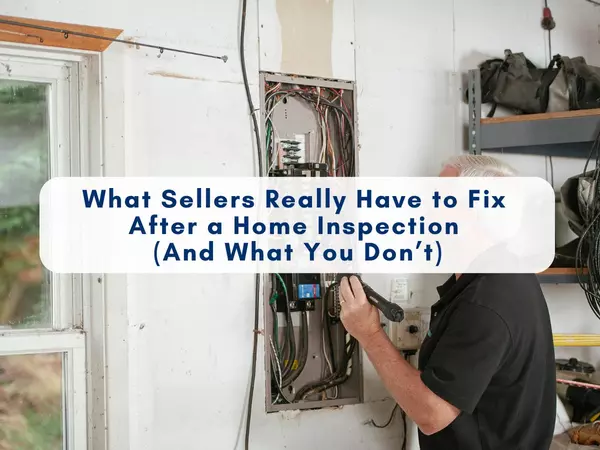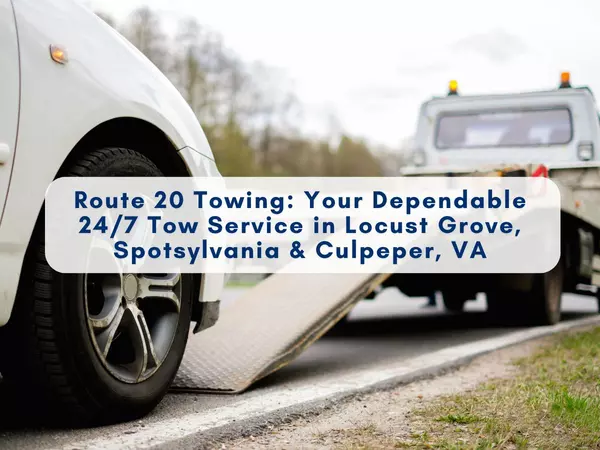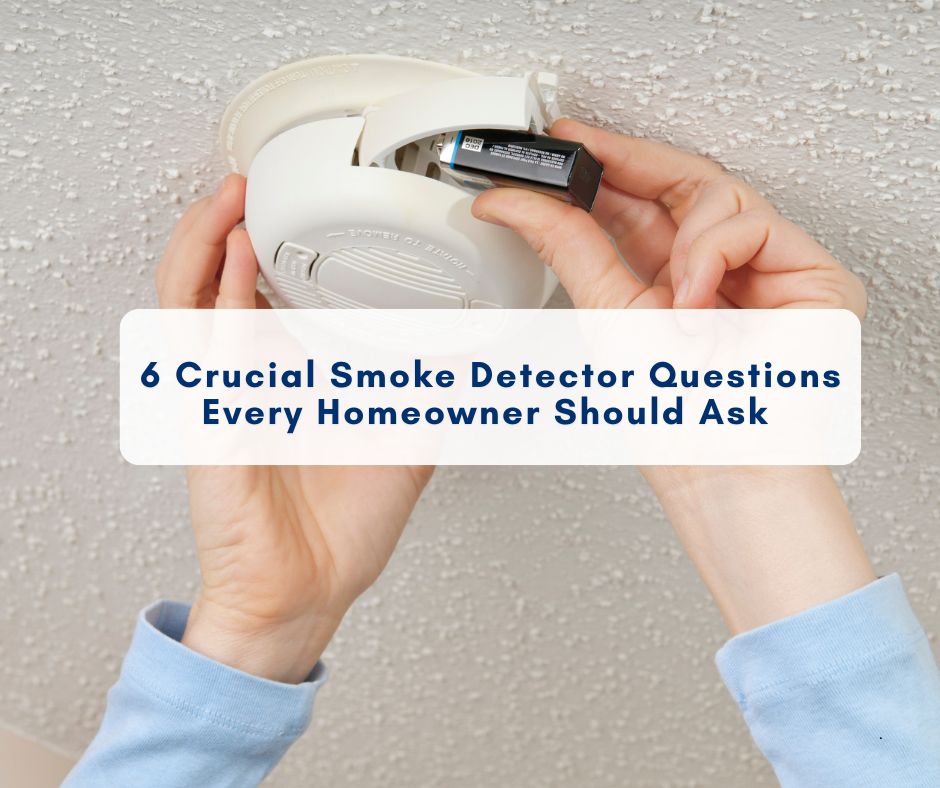6 Crucial Smoke Detector Questions Every Homeowner Should Know | Home Safety Tips

Smoke Detector Safety Guide: Everything Homeowners Need to Know to Protect Their Families
Homeownership comes with a lot of responsibilities—some exciting, like decorating your new space or planning your first backyard cookout—and others that are less glamorous but absolutely essential. One of those essential tasks? Making sure your smoke detectors are in perfect working order.
Whether you’ve just purchased your first home in Locust Grove, settled into your dream house in Culpeper, or are considering buying land to build your forever home, smoke detectors are your first line of defense against one of the most devastating home emergencies: fire.
According to the U.S. Fire Administration, working smoke detectors can cut the risk of death in a fire by 50%. Yet, many homeowners forget to test them regularly, don’t realize they expire, or are unsure where to install them.
In this blog, we’ll dive into six crucial questions every homeowner should know about smoke detectors—and how maintaining these life-saving devices is just as important as maintaining your HVAC system or roof.
1. What Exactly Do Smoke Detectors Do—and Why Are They So Important?
A smoke detector’s job sounds simple: detect smoke and alert you to danger. But in reality, these small devices do something incredibly powerful—they give you and your loved ones precious extra minutes to escape.
Fires spread faster than most people realize. In modern homes, built with synthetic materials and open floor plans, a fire can engulf a room in just two to three minutes. A properly working smoke detector provides an early warning, often making the difference between a safe escape and tragedy.
💡Think of your smoke detector as the most important “insurance policy” you’ll ever own—one that doesn’t just protect your property, but your family’s lives.
2. How Old Are Your Smoke Detectors?
Here’s a surprising fact: smoke detectors have a lifespan of about 10 years. After that, their sensors can degrade, even if they still “beep” during testing.
If you’re unsure when yours were installed, take a moment to check the back of each unit. You’ll find a manufacture date stamped somewhere on the label. If it’s over a decade old—or if you can’t find a date at all—it’s time to replace it. Some units are also designed to change color over time which gives a visual reminder of its age.
When you install new smoke detectors, grab a permanent marker and write the installation date right on the device. That way, you’ll never have to wonder when it’s time for a replacement.
3. How Often Should You Test a Smoke Detector?
Testing your smoke detectors takes less than a minute but can save your life. Experts recommend testing them at least once a month to ensure they’re functioning properly.
To test your device:
-
Press and hold the “test” button until you hear a loud beep.
-
If the sound is weak or nonexistent, it’s time to replace the batteries—or the entire unit if it’s old.
While it might feel repetitive, think of it as part of your monthly home maintenance routine, just like checking air filters or your thermostat settings.
✅ A quick test every month ensures that, when you need your smoke detectors most, they’ll be ready.
4. Do You Need to Change the Battery in a Hardwired System?
Many homeowners assume that hardwired smoke detectors don’t need battery replacements. Not true! Even hardwired systems rely on backup batteries to keep them running during power outages.
You should replace those batteries at least once a year, even if the device hasn’t started chirping. A good reminder is to change them when you set your clocks forward or back during Daylight Saving Time.
That way, you’ll never be caught off guard by that infamous 3 a.m. chirp. The majority of smoke detectors have a 9 volt rectangle shaped battery.
5. Where Should You Install Smoke Detectors in Your Home?
Placement matters—a lot. You can have the best smoke detectors on the market, but if they’re not installed in the right spots, you could still be at risk.
Here’s the general rule:
-
Every level of your home should have at least one smoke detector.
-
Every bedroom needs its own alarm.
-
Hallways outside sleeping areas should also have one.
Closed doors can slow smoke from entering a room, meaning you might not smell smoke—or even realize there’s a fire—until it’s too late. Having alarms both inside and outside bedrooms ensures everyone gets an early warning.
For homes with multiple levels (like basements or attics), be sure to install alarms on each floor. If you’re building a new home, talk to your contractor about integrating interconnected smoke detectors—when one goes off, they all do. For a home that's already built, It's a wise idea to connect with a home inspector or builder who is aware of the most current safety codes when it comes to the most up-to-date install locations.
➡️This synchronized system ensures no matter where a fire starts, the whole household is alerted instantly.
6. Are There Different Types of Smoke Detectors?
Yes—and understanding the difference can help you choose the best protection for your home.
There are two primary types of smoke detectors:
-
➡️Ionization smoke detectors: These detect fast, flaming fires (like those caused by grease or paper). They’re very sensitive to quick-burning materials.
-
➡️Photoelectric smoke detectors: These detect slow, smoldering fires (like those caused by upholstery or electrical malfunctions).
For the best protection, many homeowners opt for dual-sensor smoke detectors, which combine both technologies. They detect both types of fires, giving you comprehensive coverage.
When shopping for replacements, check the packaging to confirm which type you’re buying—or better yet, choose a dual model for peace of mind.
7. What If You Don’t Have Smoke Detectors in Your Home?
If your home doesn’t have smoke detectors—or if they’ve been removed—it’s critical to address that immediately.
No one should live without this basic layer of protection. If cost is a concern, reach out to your local fire department or community safety organization. Many offer free smoke detectors to homeowners who need them.
⚠️Installing smoke detectors isn’t just about meeting building codes—it’s about creating a safe, secure home environment for you and your loved ones.
Don’t Forget About Carbon Monoxide Detectors
While you’re checking your smoke detectors, take a few minutes to look at your carbon monoxide (CO) alarms too.
Any home that uses gas for cooking, heating, or has a fireplace should have CO detectors installed. Carbon monoxide is an invisible, odorless gas that can be deadly in high concentrations.
Place CO detectors near sleeping areas and on every level of your home—especially close to gas appliances or attached garages.
✅ Having both smoke and carbon monoxide detectors ensures your home is protected from two of the most dangerous household hazards.
Additional Home Safety Tips for Homeowners
Maintaining a safe home doesn’t stop with your smoke detectors. Here are a few additional safety habits that every homeowner should build into their routine:
-
Create and practice a fire escape plan. Make sure every family member knows at least two ways out of each room.
-
Keep a fire extinguisher handy, especially in the kitchen or garage.
-
Replace outdated wiring or overloaded power strips that could pose fire risks.
-
Schedule regular HVAC maintenance, since heating systems are a leading cause of household fires.
These small steps go a long way in ensuring that your home remains a safe haven, not a hazard.
Final Thoughts: Small Device, Big Impact
When it comes to protecting your home, smoke detectors might seem like a small detail—but their impact is enormous. Regular maintenance, proper placement, and timely replacements can mean the difference between minor damage and a life-threatening disaster. As a homeowner, you have a lot on your plate—budgeting, maintaining, and improving your property but nothing is more important than creating a safe, secure home for you and your loved ones.
Beyond safety, maintaining your home’s essential systems—like smoke detectors—also impacts your property value and inspection reports. When it comes time to sell your home, inspectors will check for working smoke and CO detectors. Homes missing them or with outdated units can raise red flags and even delay a sale.
By staying proactive now, you’re protecting both your family’s well-being and your investment’s future value. If you’re buying your first home, preparing to sell, or exploring land for your dream build, I’m here to guide you through every step—from smart safety planning to understanding your investment.
Let’s make sure your next home isn’t just beautiful—it’s safe, sound, and built for your future. Reach out today to schedule a consultation and start your next chapter with confidence.
Categories
Recent Posts











Buying a home isn’t just a financial decision—it’s a deeply personal journey filled with hopes, dreams, and big life changes. That’s why choosing the right real estate professional is one of the most important steps you can take.
A knowledgeable and experienced REALTOR® does more than open doors and write offers. They’re your advocate, your problem-solver, and your steady guide through what can sometimes feel like an overwhelming process. Whether it's navigating a competitive market, negotiating on your behalf, or keeping things on track behind the scenes, the right agent is there to protect your interests every step of the way.
In the end, buying a home should be an empowering experience. With the right person by your side—someone who brings both expertise and heart—you can move forward with confidence, knowing you're in good hands with Sean Jones.
GET MORE INFORMATION

